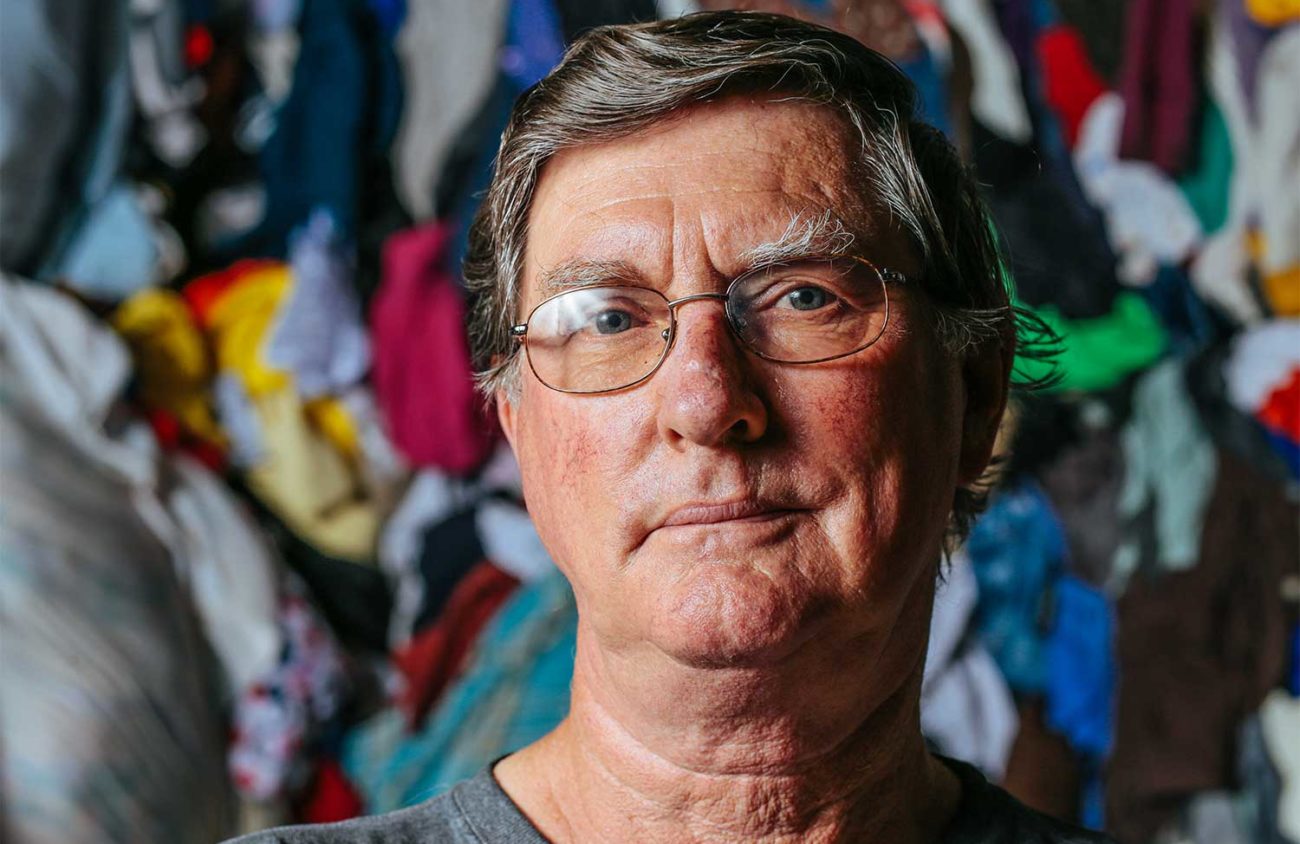A former steel plant in Eugene will soon be a mobile home manufacturing site.
The mobile home manufacturing will be led by the nonprofit Housing Options Production Enterprise (HOPE), which will operate alongside St. Vincent de Paul. HOPE received money to kickstart its endeavor from the Oregon Legislature, and it intends to build manufactured homes for wildfire survivors, as well as address the state’s housing crisis. And if the nonprofit succeeds, it could be a model for the nation, says SVdP Executive Director and — now — HOPE President Terry McDonald.
For years, St. Vinnie’s, as SVdP is known, has bought and renovated many mobile home parks serving low-income people in the area, McDonald says. The homes were in poor condition and not energy efficient or resilient against wildfires, he adds.
SVdP found itself buying new mobile homes for the parks, but the costs of the units were always rising and the supply was decreasing. So he and other housing stakeholders talked about creating a facility that would develop manufactured homes to address the affordable housing crisis.
McDonald says he spoke with the governor’s office and state lawmakers about this idea. And during the 2022 legislative session, state Rep. Pam Marsh of southern Jackson County called him to see if he was serious about manufacturing the homes.
“What we’re doing is looking strategically at upstream impacts,” Marsh tells Eugene Weekly. “How to get ahead of this housing crunch. How to increase the capacity for housing. It’s really thinking outside of the box.”
During the 2022 legislative session, the Legislature passed many bills filled with cash for projects throughout the state. Marsh earmarked $15 million to help HOPE get started with its enterprise to build prefabricated housing units for those displaced from wildfires.
McDonald says that rather than having St. Vinnie’s receive the money from the state, he had another nonprofit with 501(c)3 status ready to go.
The organization that would become HOPE had no assets or business activity attached to it, SVdP Marketing and Communications Coordinator Joel Gorthy says, and was essentially a shell corporation with McDonald as its head. On April 20, the board of directors of that organization changed its name to HOPE Community Corporation.
Marsh says 2,500 housing units in her district were lost during the 2020 Alameda Fire. Of those units, 1,500 were manufactured homes. She says there’s been a delay in getting housing units in southern Oregon from factories for those displaced by wildfires. “We have people who have waited here for more than a year and still don’t have their homes,” she says.
The factory will be at the former American Steel Plant in west Eugene, which SVdP purchased on May 11, 2022, for $8.35 million, and HOPE will take over and lease space to SVdP for a storefront business, McDonald says. The philanthropic nonprofit Oregon Community Foundation is also providing HOPE with financing to convert the building into the factory.
Finding staff to work in the plant will be difficult in the current hiring market, McDonald says. So HOPE will work with local agencies, such as Lane Community College and Lane Workforce. “One of the long term goals for us is to grow that labor force,” he says of the shortage of electricians, plumbers, carpenters and other vocational workers. “Having this factory setting where they can learn those skills would be ideal.”
McDonald says the plant will manufacture single- and double-wide units. The single-wide units will be 770-square foot with two bedroom and one bathroom, and the double-wides will be 1,260-square foot three bedroom, two bathroom units, he says. They’ll also be energy efficient and fire resistant, but also affordable, he adds. “That’s the trifecta that we’re looking for,” he says.
Marsh says that she would like to see Oregon be home to a regional hub for manufactured home factories. With climate change increasing the likelihood of higher intensity wildfires, an Oregon-based manufacturer could provide housing to wildfire survivors in an efficient way, she says.
McDonald says if the HOPE model works, it could serve as one solution to the nation’s housing crisis.
“If this particular concept works, it’ll be a big deal for the country,” McDonald says. “We’ll be taking a not-for-profit model and spreading it into dealing with a systemic problem of this kind of housing across the country. I’m hoping this can be a model for doing this throughout the country.”
For more information on St. Vinnie’s, visit Svdp.us.
